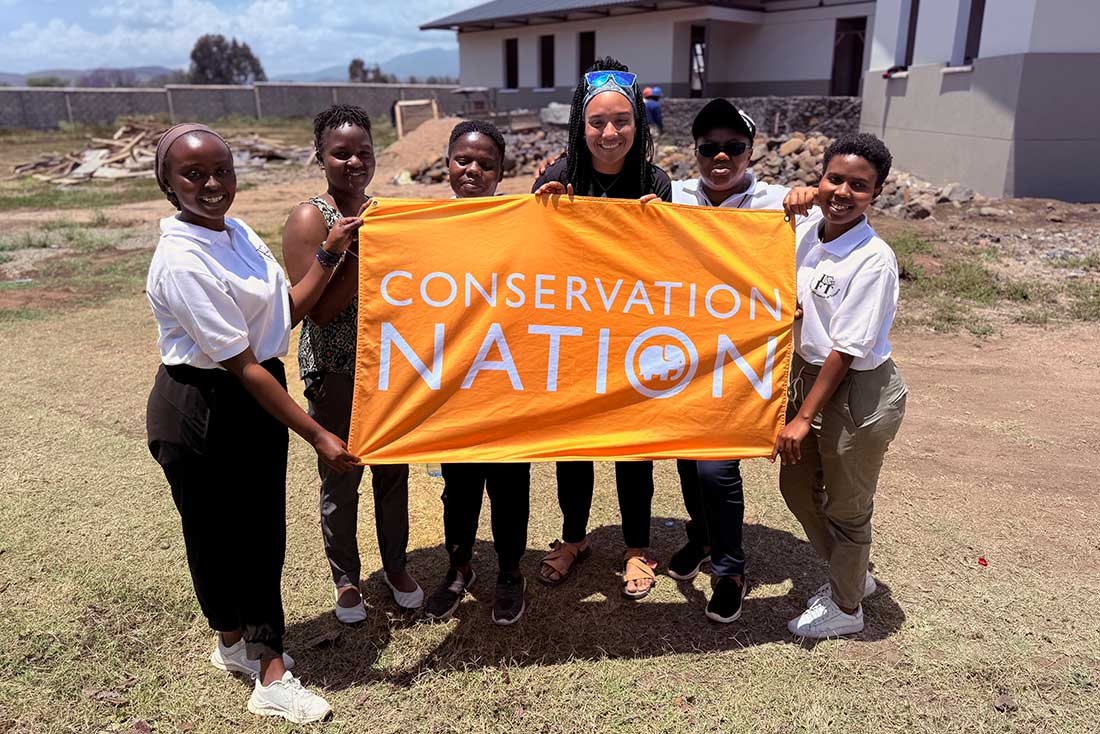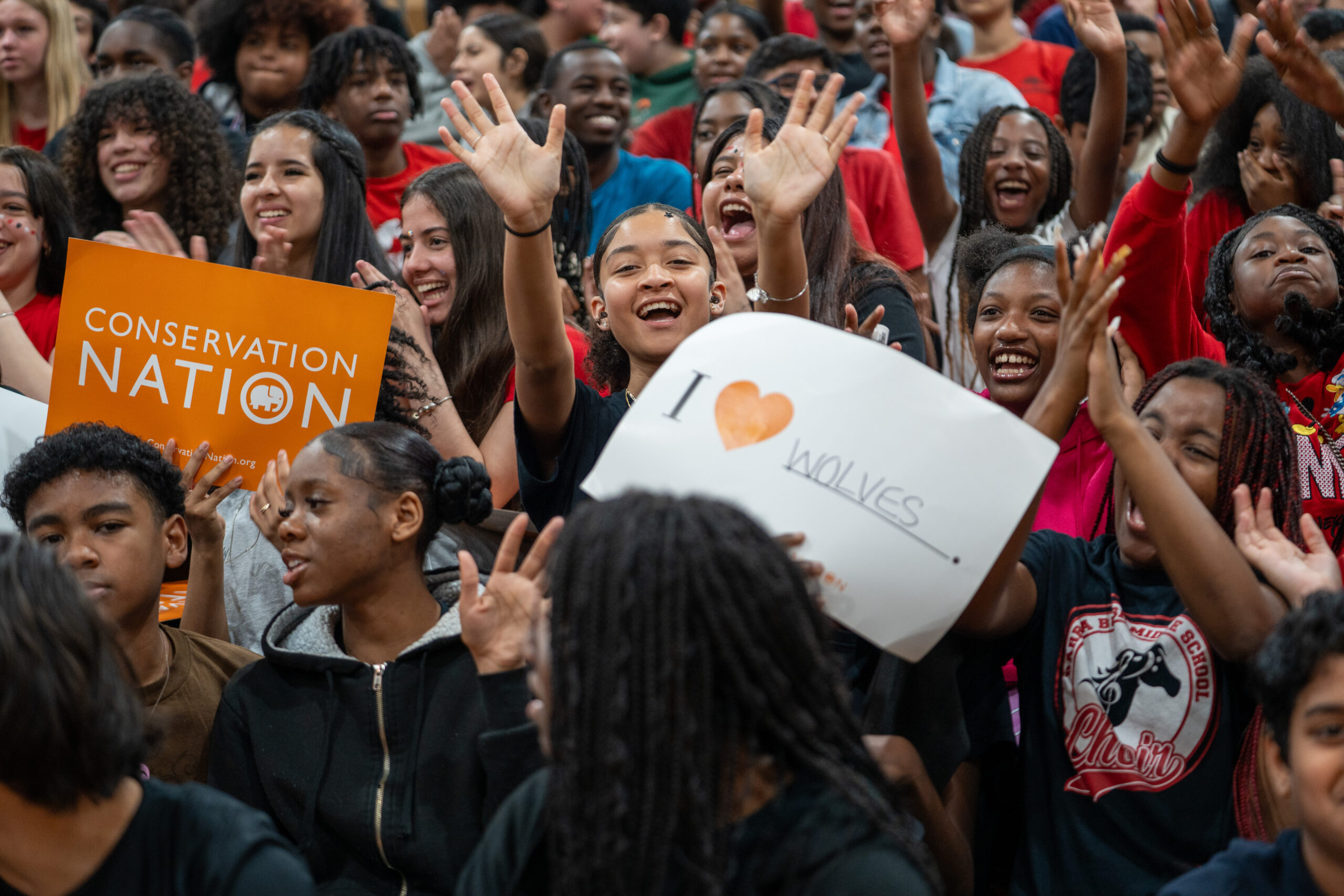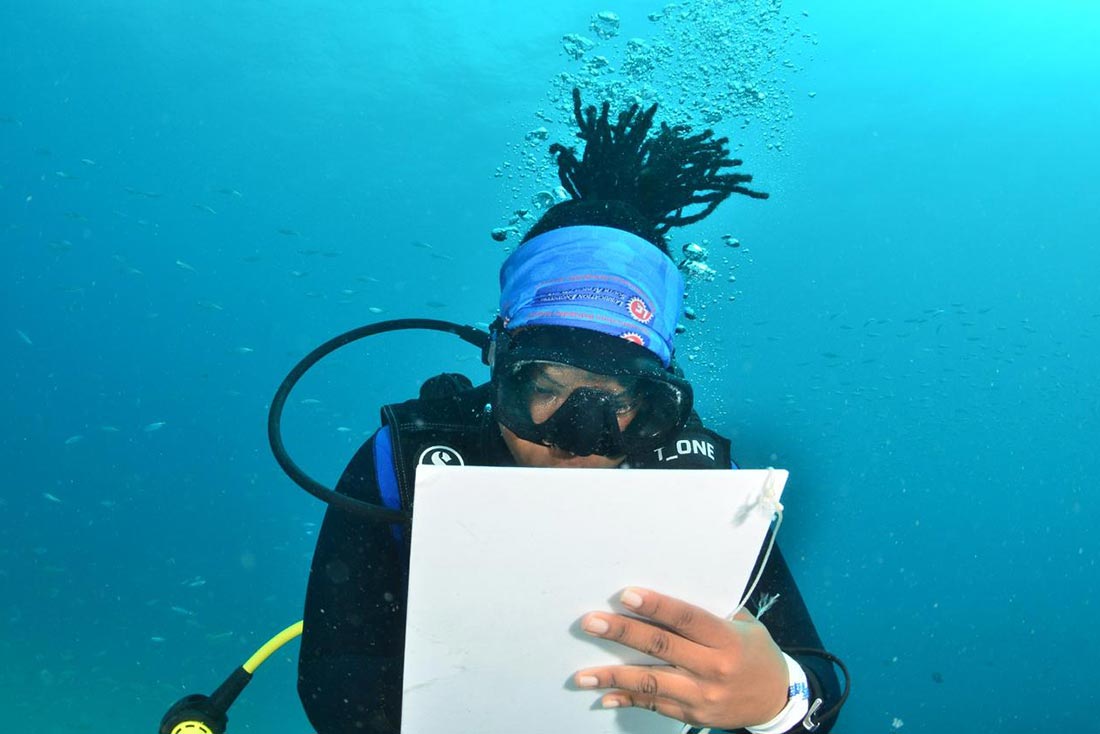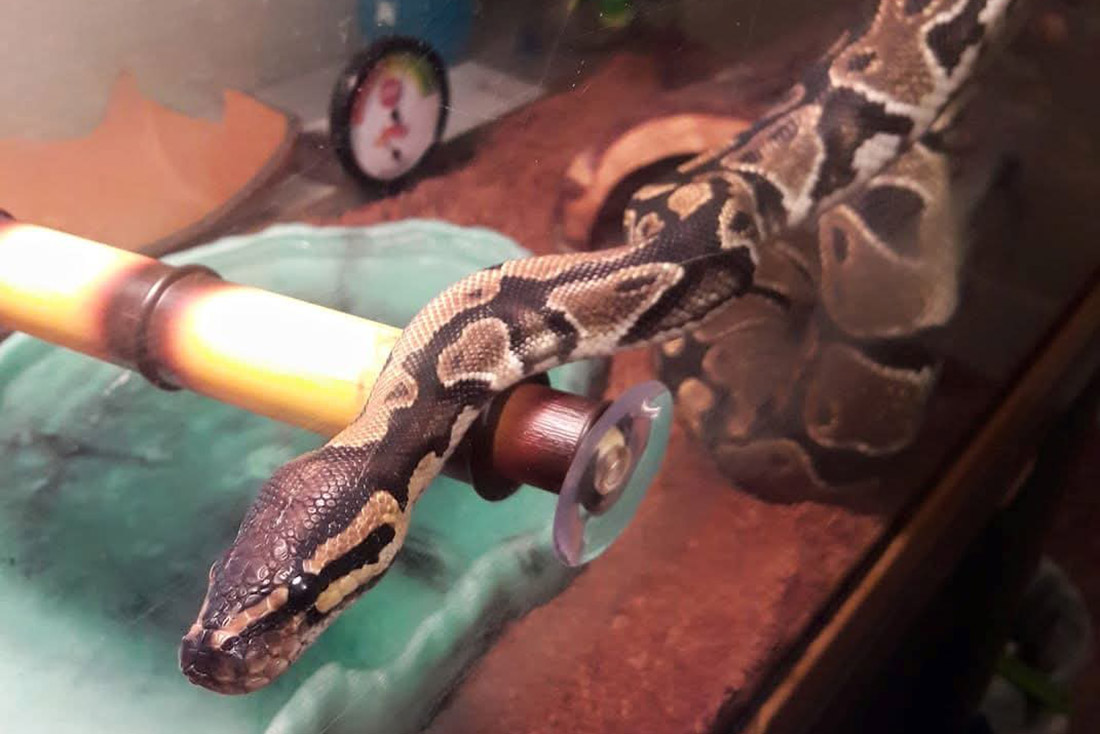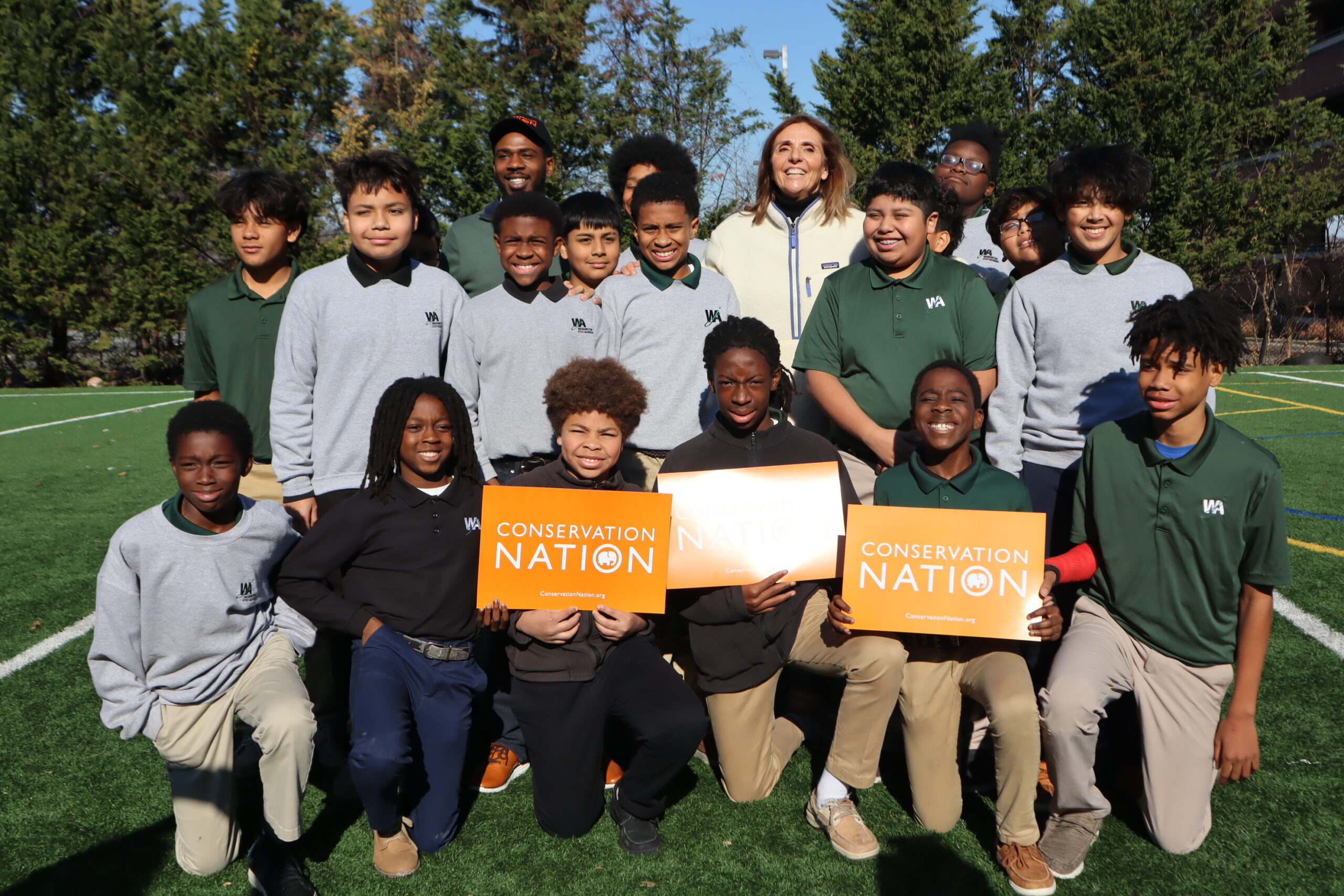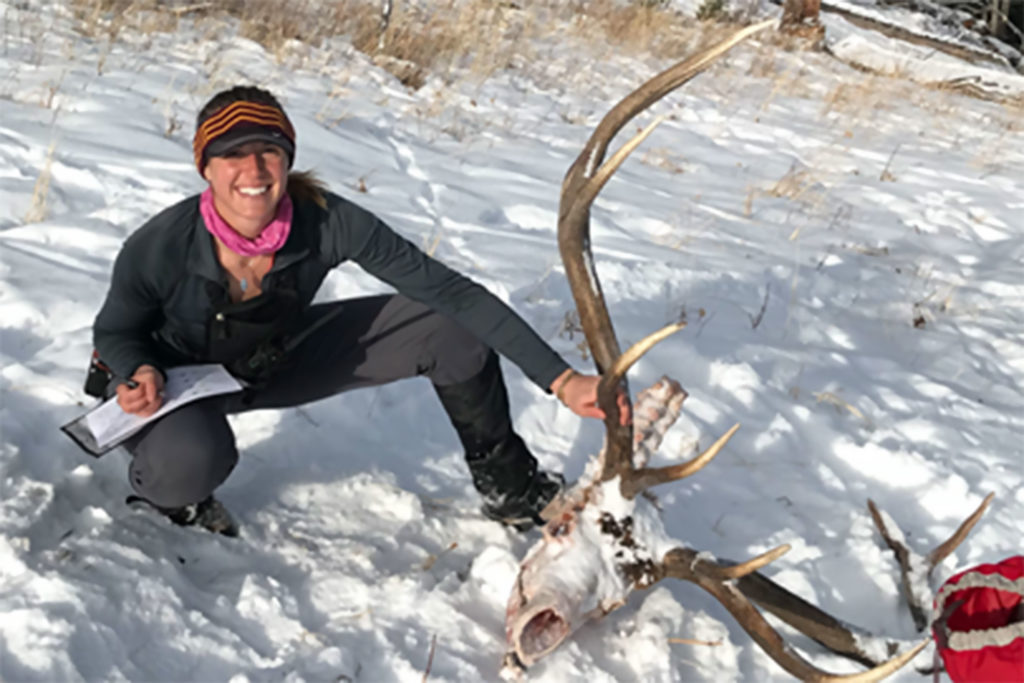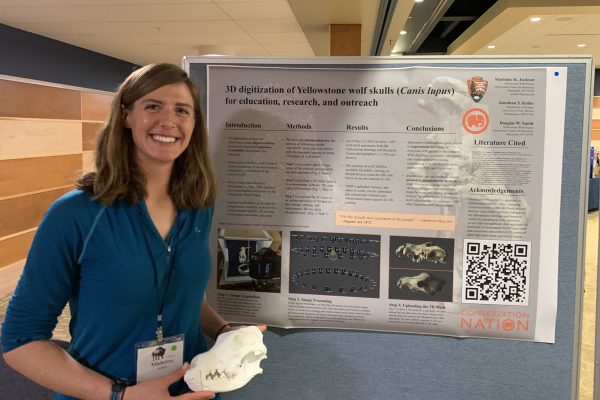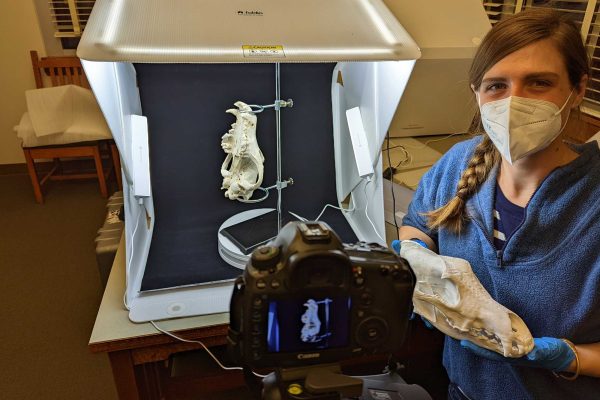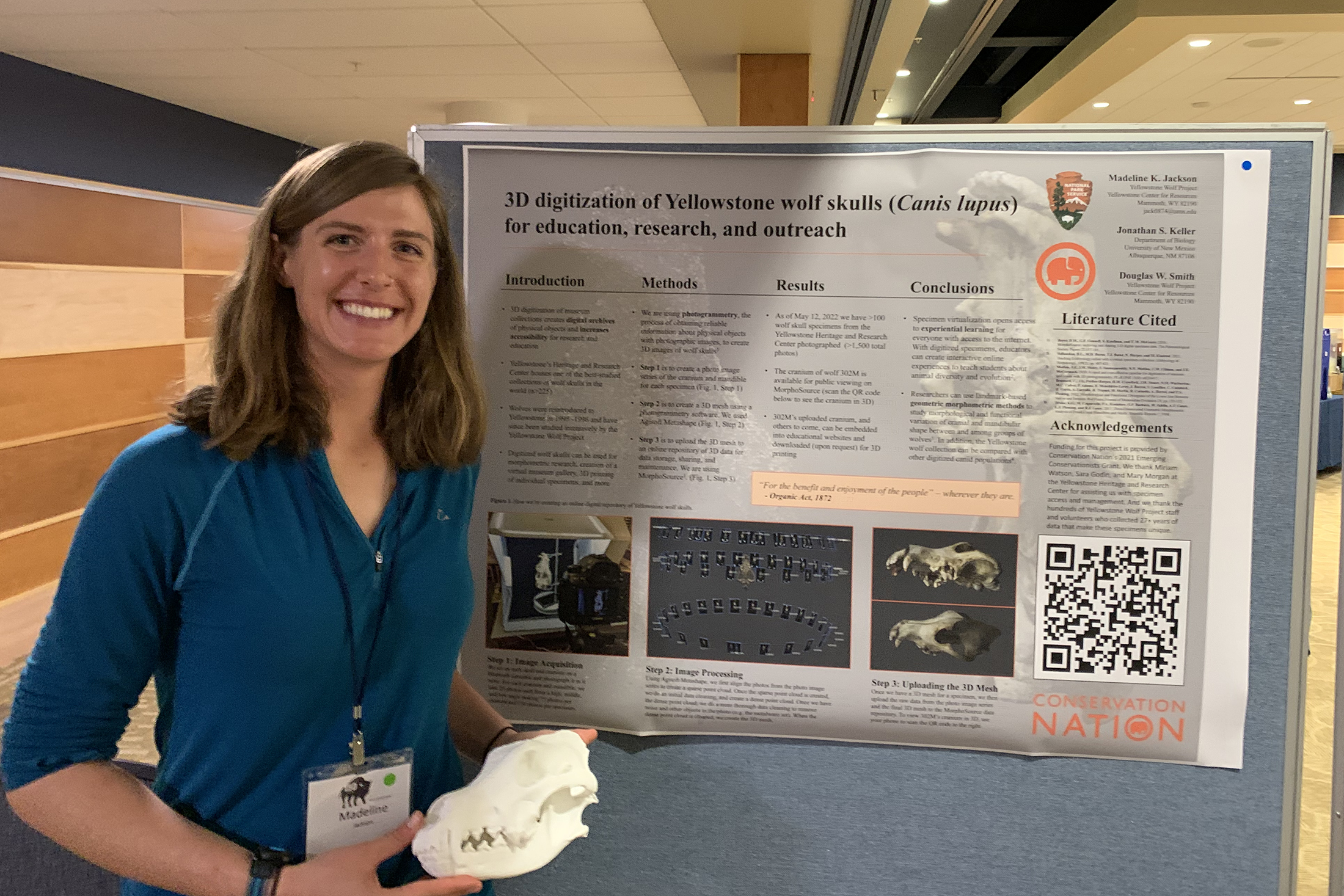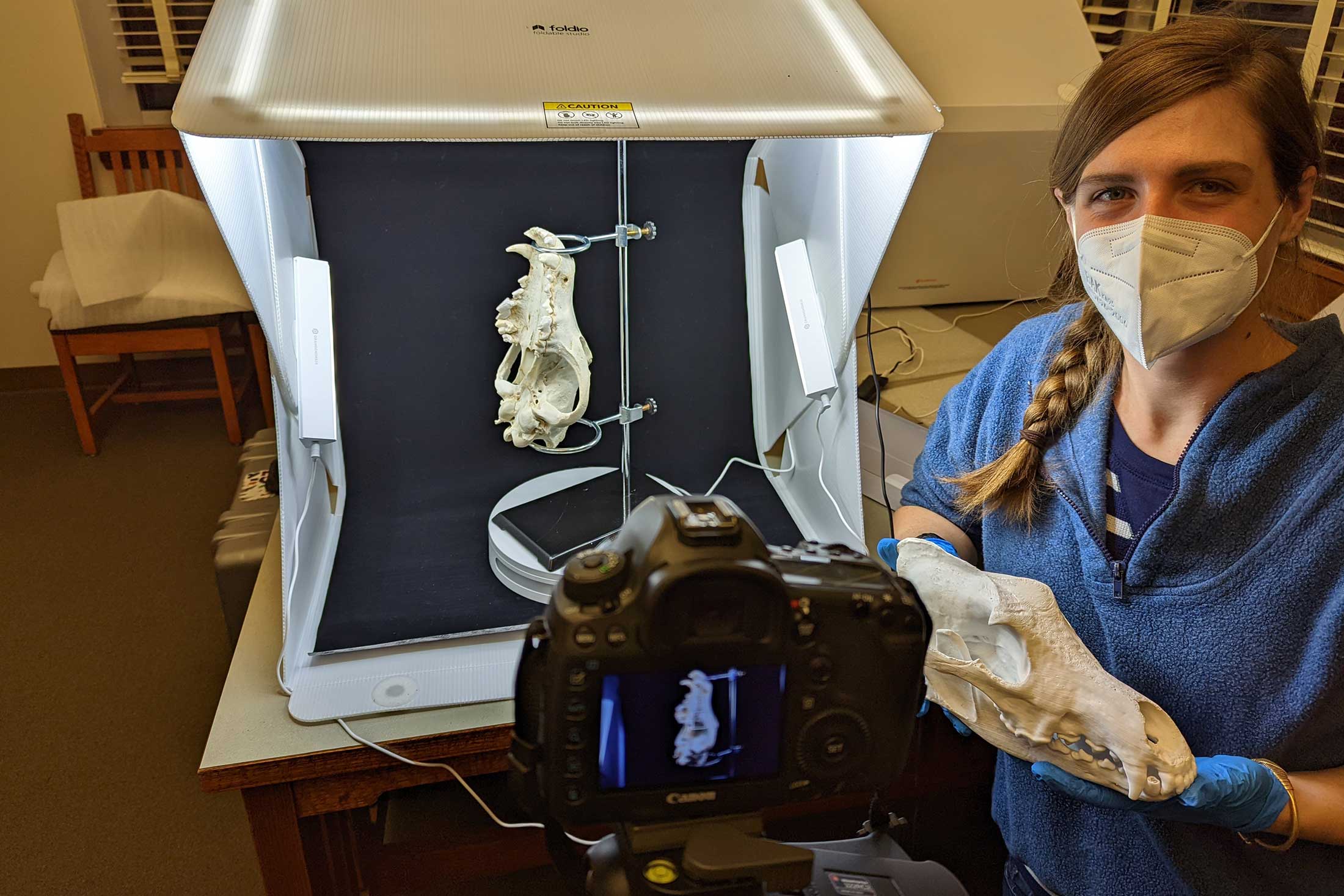Maddy Jackson is one of Conservation Nation’s 2021 emerging conservationist grant winners. She graduated from the University of Minnesota in 2017 with a BS in Ecology, Evolution, and Behavior and currently works for the Yellowstone Wolf Project as a wildlife research technician. Over the past few years, Maddy has sought out a variety of experiences that will help her in her effort to study, protect, and advocate for threatened wildlife populations. In 2015, she worked with a team of biologists in northern Tanzania to conduct large mammal population surveys to assess the impact of the United Nation’s REDD+ land-use plan on wildlife conservation.
In northern Minnesota, she learned how to capture and radio collar wolves for the US Geological Survey’s wolf-deer project, one of the longest-running predator-prey studies in the world. She later tracked threatened swift foxes across the plains of northeastern Montana and searched predicted habitat for wolf sign in the dense forests and wilderness of northcentral Idaho.
Wolf Skulls Digitization/Database Creation
For her project, Maddy plans to digitize Yellowstone’s extensive collection of wolf skulls to analyze the relationship between dental malocclusion and mortality, to study how Yellowstone wolves have changed since their reintroduction in a protected landscape, and to characterize how they differ from other North American wolves. Yellowstone wolves rely on their teeth to hunt large prey like elk and bison and in human-dominated landscapes, where native prey species have been displaced by livestock, dental abnormalities may lead wolves to seek out livestock as an easier food source and increase conflict with humans. Understanding the conditions that lead wolves to alter their food habits and depredate livestock is crucial for their conservation. In collaboration with ecomorphologist Jonathan Keller from the University of New Mexico, she will use 3D meshes of the skulls for geometric morphometric analyses, then publish the results of their research in a peer-reviewed journal. Maddy hopes to make the digital wolf skull database available on an online data repository for use by other researchers and for public education purposes.

